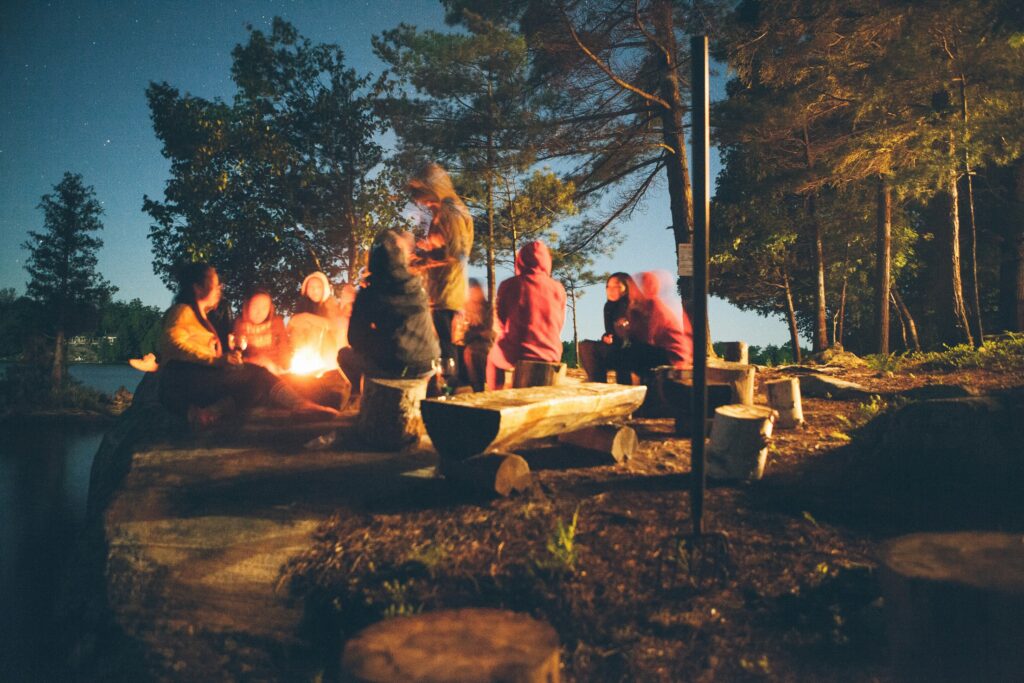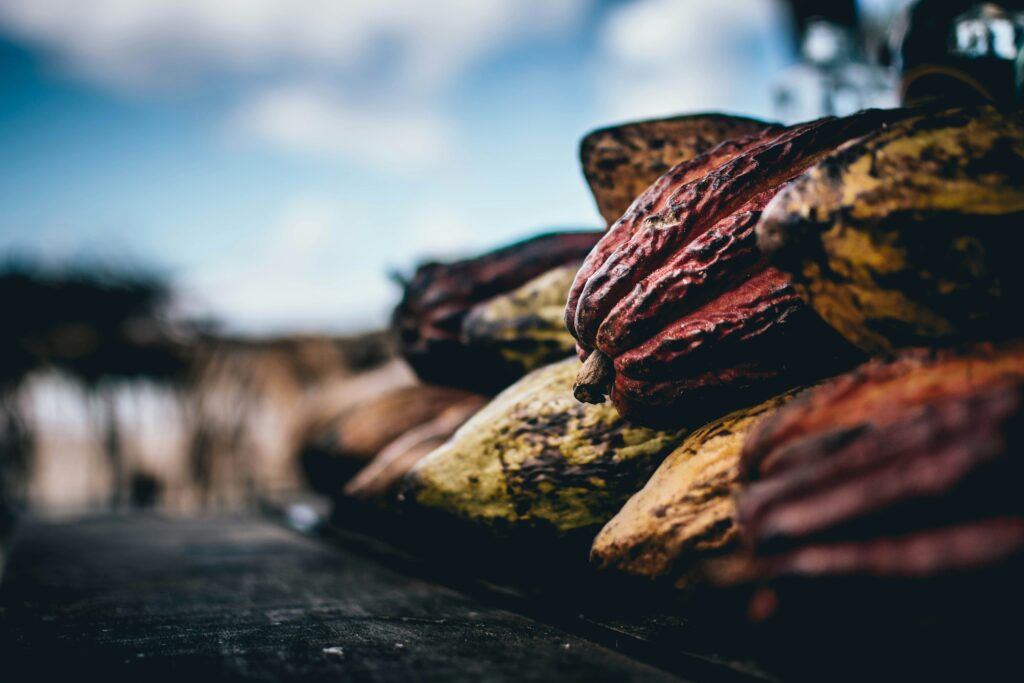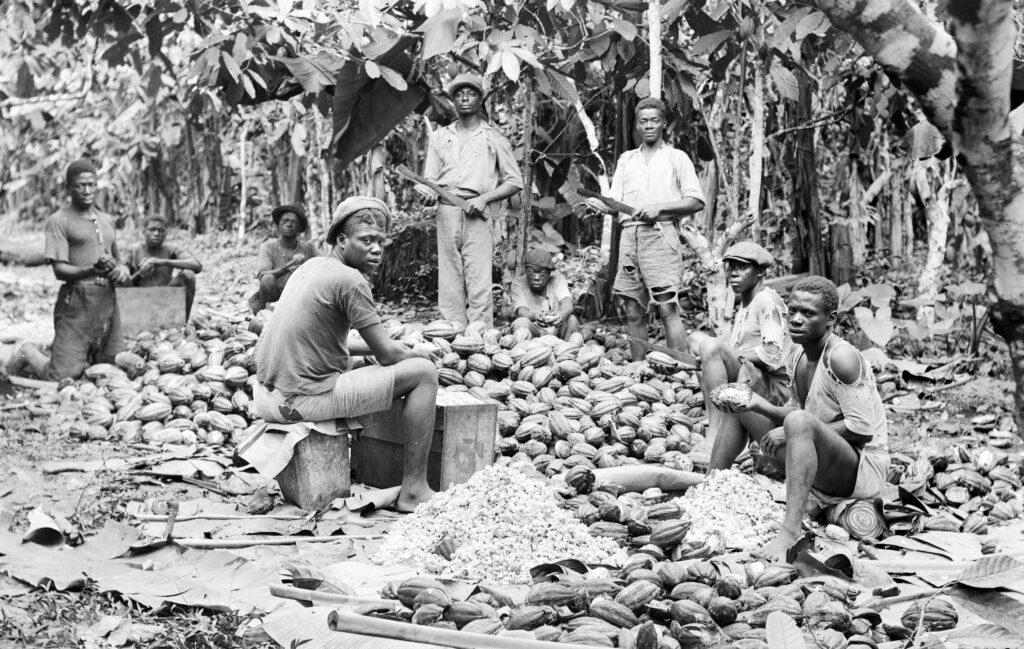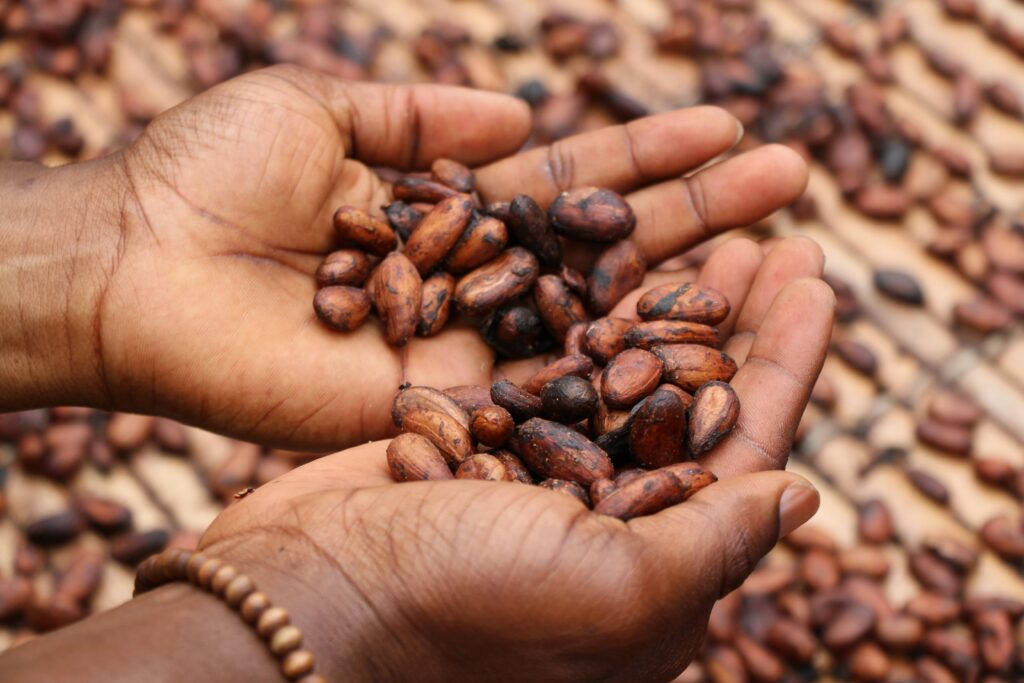Cacao ceremonies promise a reconnection to self and a spiritual awakening, but is their popularity really ethical?
Many of us know about the horrific exploitation of children and adults alike in the chocolate industry, alongside the cost to Mama Earth. Cacao is billed as an alternative to all of that, it’s chocolate for people who care, and cacao ceremonies have become more and more popular as a way to expand the enjoyment and benefits of this wonderful crop.
What are the Benefits of Cacao?
Cacao offers to boost energy, reduce stress, improve focus, regulate blood pressure, enhance mood and balance our hormones and brain chemistry. It’s also packed with essential vitamins and minerals like magnesium, zinc, iron, potassium, copper, chromium and Omega 6. Beyond its physical and mental benefits though, cacao holds significance in certain spiritual traditions. Believed to possess heart-opening energy, it’s often used in ceremonies to facilitate deeper self-connection, emotional release, and heightened intuition. The ritualistic aspect of preparing and consuming cacao can create a sacred space for introspection and exploration of inner landscapes.

I’ve been considering incorporating cacao ceremonies into my Forest Bathing offerings to enhance participants’ experience, however, I felt compelled to explore the ethical considerations associated with this practice before doing so.
🌿Related: What is Forest Bathing
Let’s start with the basics.
What is the Difference Between Cacao, Cocoa and Chocolate?
Cacao is the unprocessed form of the product.
Cacao is turned into cocoa which is then turned into chocolate.
Where is Cacao Grown?
The vast majority of cacao grows in West Africa, specifically Côte d’Ivoire, Ghana, and Nigeria. These three countries account for over 70% of global cacao production.
Here’s a breakdown of the top cacao-producing countries:
- Côte d’Ivoire (Ivory Coast): Approximately 38% of global production.
- Ghana: Around 20% of global production.
- Indonesia: Roughly 9% of global production.
- Nigeria: About 6% of global production.
While other countries like Ecuador, Brazil, and Cameroon also contribute to cacao production, their share is significantly smaller compared to the dominant players in West Africa.

What are the Potential Ethical Issues with Cacao Ceremonies?
The Climate Crisis
There is no debate about whether cacao production is detrimental to the climate. While much of the demand for the beans is for the chocolate industry, increasing demand for the supply of ceremonial cacao will only worsen this issue. Even when seeking out sustainably grown cacao, this crop only grows in certain climates adding transport emissions and packaging issues to the impact.
In an effort to keep up with the demand for chocolate, farmers clear tropical rainforests to plant more cacao trees. Much of the illegal deforestation in West Africa is by cacao farmers seeking more space to grow their crops. These rainforests are often referred to as the lungs of the Earth, they do many important jobs like providing oxygen, absorbing carbon, and serving as a home for a huge number of species.
Additionally, in 2018 a study found that 10,000 litres of water is needed to produce just 1 kilogram of chocolate and that the land use change caused by cacao production has increased the Global Warming Potential of the crop by 3 or 4 times.
Workers’ Rights and Welfare in the Cacao Industry
Huge corporations, wielding their financial power, squeeze cacao farmers into accepting poverty wages, leaving them with no bargaining power to prevent being driven out of business.

The chocolate industry, built on generations of colonial violence and oppression against cocoa farmers, continues to reverberate its ramifications through families and communities at large. As cacao ceremonies gain popularity in the Global North with the descendants of the colonisers, it’s impossible to disconnect this history from this modern trend.
Child Labour Practices
While the chocolate industry is infamous for its exploitation of adults and children alike, a sizeable portion of the process of growing, harvesting and transporting the beans is also relevant to cacao production. The portion of the industry that turns the cacao into cocoa and then into chocolate is largely done outside of the country of production in places with different (often better) workers’ rights. This unfortunately means that, unless you seek out ethical growers and suppliers, the same people are being harmed whether you buy a slab of Cadburys or a pack of ceremonial cacao paste.
Cultural Appropriation in Cacao Ceremonies
As cacao ceremonies gain popularity, it’s vital to acknowledge their significance in indigenous cultures and avoid cultural appropriation. Approaching these practices with respect and seeking guidance from those with cultural knowledge is crucial. Modern cacao ceremonies often bypass the traditional practice of spending time in an area, getting to know the people, and being invited to participate in a ceremony with them, instead remaining entirely detached from the cultures they borrow from.

What are the Solutions to Ensure an Ethical Cacao Ceremony?
One option to consider is reducing our use of chocolate when we begin using cacao. Additionally, sharing what we learn about the chocolate industry helps to increase awareness. This can be done in our social groups and on social media, especially by sharing ethical options.
We can also only choose verifiably ethical producers of cacao. Ideally, we should source cacao from small independent growers, fostering personal relationships with them, or from companies with demonstrably vetted and transparent supply chains.
Many of those practising cacao ceremonies as part of their culture want to share the beauty and power of the ritual and the gifts of the cacao itself. Still, it is important to respect its origins and ensure that they benefit from its popularity. Soul Lift Cacao provides an excellent outline of how to respect both the cultures and the cacao itself when using it. The suggestions include:
- Not using the phrase “cacao ceremony” to make it clear it is not a traditional practice.
- Verbally honouring those who grew and prepared the cacao, including ancestors, in your practice.
- Learn from and share information from native cacao teachers and stewards rather than those outside of the culture.
- Source and prepare your cacao ethically.
It’s reassuring for me to know there are ethical ways to enjoy this magical experience. Ways that respect its history, spiritual significance, and the cultures that have preserved the tradition.

Can I Participate in Cacao Ceremonies with a Clear Conscience?
I believe so, as long as I abide by the many areas I have explored here:
- sourcing ethically grown cacao specifically from companies where the majority of the money stays in the growing country
- getting to know the farmers and workers who are involved in the production of the cacao I use
- learning only from native cacao teachers to ensure they are compensated for sharing their knowledge and their work
- and honouring the traditions and people during every cacao journey or cacao circle I facilitate.
It’s certainly a complex topic! I’d be interested to hear your thoughts on it and how you navigate these issues.
Resources
The Protestant Ethic and Development Ethos: Cacao and Changing Cultural Values among the Mopan Maya of Belize- Erik Nathaniel Stanley.
Ethical Cacao Production: Challenges & Opportunities.
